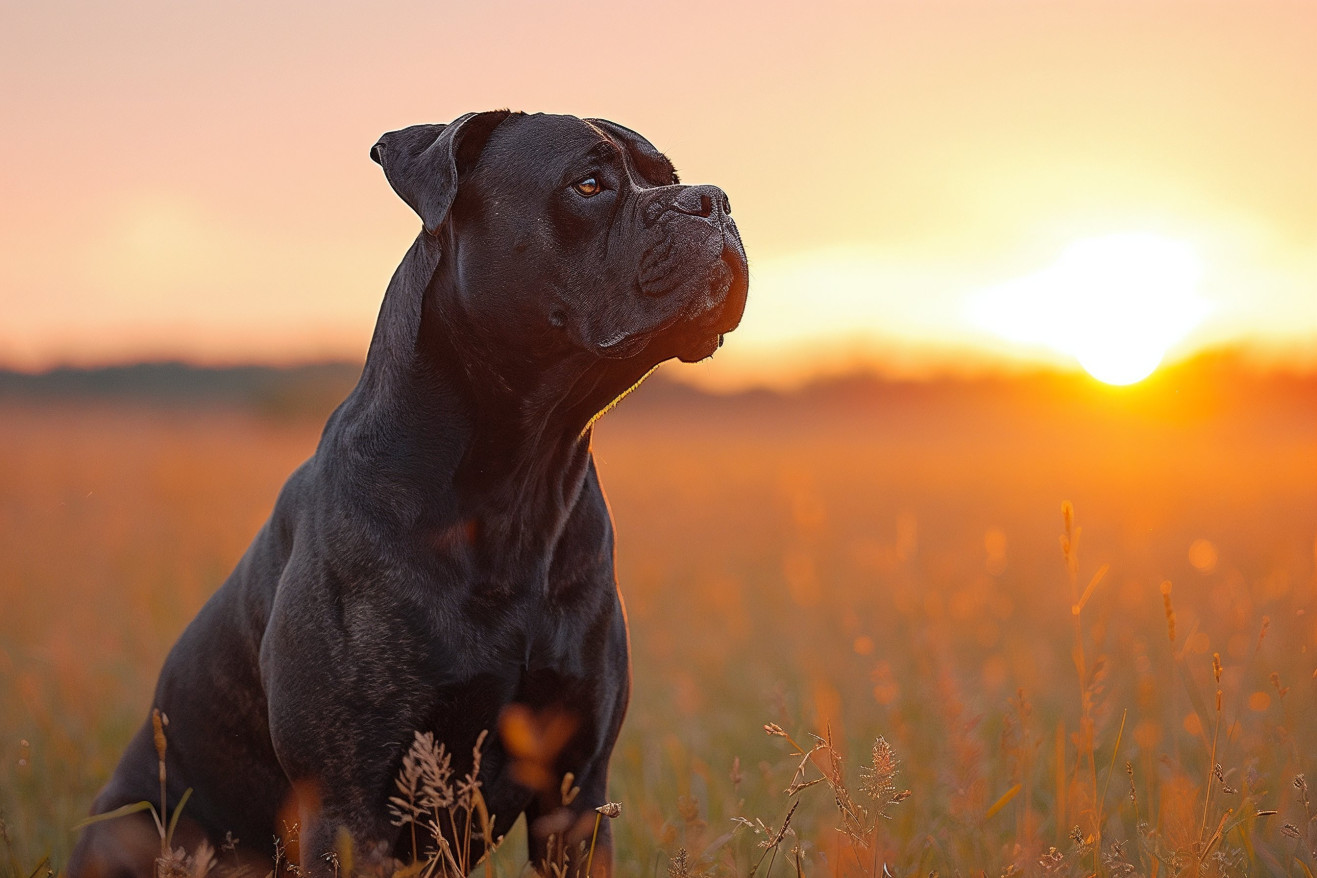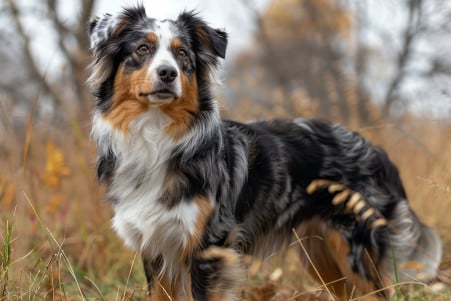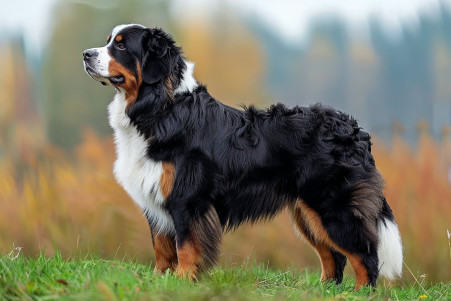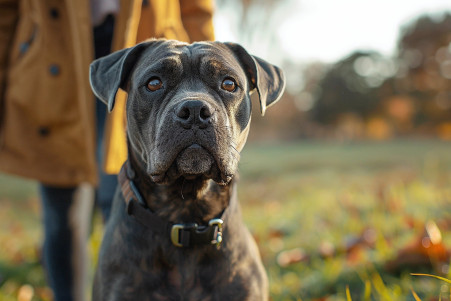Cane Corso Life Span: What to Know About How Long These Majestic Dogs Live
2 February 2024

Cane Corsos are beloved family pets, but you may be wondering how long these regal dogs will be a part of your life. On average, Cane Corsos live between 9 and 12 years. However, this number can be impacted by genetics, diet, exercise, and the level of veterinary care. Managing health problems as they arise is also important for helping them live a long life.
To learn more about the life expectancy of Cane Corsos, we will look at a number of scientific studies. This will include genetic research, veterinary studies, and investigations into breed-specific care.
By combining information from these different areas of study, we hope to learn more about how genetics, diet, and medical care all play a role in how long these majestic dogs live, and provide a well-rounded understanding that will help you keep your Cane Corso healthy.
What are the primary factors that influence the lifespan of Cane Corsos?
Genetic Factors That Influence Cane Corso Longevity
Research into the genetic factors that influence Cane Corso longevity is a deep dive into the breed’s genetic makeup. A study in BMC Veterinary Research by Jiří Hejnar found four genes—TDRP, MC2R, FBXO25, and FBXL21—that were strongly associated with longer lifespans in Cane Corsos. This suggests that specific genetic markers may be important for predicting and even increasing a Cane Corso’s lifespan through selective breeding.
In addition, one of the most interesting genetic factors that influence Cane Corso longevity is the connection between coat color and lifespan. A study in PMC by Marie Bydžovská found that Cane Corsos with black brindle coats had a significantly longer median lifespan, adding another layer to the factors that breeders must consider.
These findings show that genetic diversity and ethical breeding are key to ensuring the health and longevity of the breed. If breeders take these genetic factors into account, they may be able to improve the health of Cane Corsos and help these regal protectors live longer, healthier lives. This comprehensive approach to breed health, which starts at the genetic level, also extends to other areas of a Cane Corso’s life, including their nutrition.
Feeding Giants: How Nutrition Impacts the Life Expectancy of Cane Corsos
The life expectancy of a Cane Corso can be impacted by the dog’s diet, especially since large breed dogs have specific nutritional needs. According to a study by the Canadian Academy of Veterinary Nutrition, these impressive dogs need to have a balance of calories and nutrients that will help them maintain their large size and avoid developmental orthopedic diseases.
Overfeeding, especially during puppyhood, can lead to chronic joint issues, which is a problem that large breed dog owners need to be aware of in order to make sure that their dogs live long and healthy lives.
A landmark study on Labrador Retrievers, which was published on PubMed and shares many similarities with large breeds like the Cane Corso, found that a 25% reduction in calories led to dogs that not only lived longer but also had a delay in the onset of chronic diseases.
VCA Animal Hospitals also point out the importance of feeding large breed dogs a diet that is specifically formulated for their needs, including ingredients that support joint health and weight management, like glucosamine and omega-3 fatty acids, especially those derived from fish oil.
Make sure that you’re feeding your Cane Corso a diet that includes portion control and high-quality nutrients that will help them maintain a lean body condition. Instead of overfeeding, which is a common mistake, make sure that you’re feeding your dog a balanced diet that can help them live a long, healthy life.
In addition to nutrition, it’s also important to remember that exercise is important for the health and longevity of a Cane Corso, so make sure that you’re providing your dog with regular, appropriate physical activity.
Exercise and Mental Stimulation for Cane Corso Longevity
Given the Cane Corso’s large size and high intelligence, it’s important to make sure they get the right amount of both physical and mental stimulation. The American Kennel Club notes that proper exercise for large dogs like the Cane Corso is important for their overall health and longevity.
However, this must be balanced with the risk of musculoskeletal issues, which can be exacerbated by too much or too strenuous exercise, especially in a breed that’s prone to these issues.
By tailoring exercise to their specific needs, owners can help prevent common health problems like obesity, which can put a strain on a Cane Corso’s heart and joints.
Owners can also help improve their Cane Corso’s quality of life by providing structured exercises that challenge them both physically and mentally, such as agility training or other forms of interactive play.
As Dr. Brian Hare of the Duke Canine Cognition Center explained to the American Kennel Club, mental stimulation is just as important as physical exercise, especially as dogs get older. Regular mental stimulation through games and training, combined with a diet that supports brain health, can help ensure that a Cane Corso’s mind stays active and alert.
Owners should work to develop an exercise routine that meets their dog’s physical needs and then build in mental challenges that increase in difficulty to help maintain their dog’s mental and physical health. This kind of focus on exercise and cognitive health can help ensure that an owner takes a proactive approach to veterinary care, which can help ensure a Cane Corso’s longevity.
The Foundation of Canine Well-Being: Veterinary Care for Cane Corsos
The health and life expectancy of Cane Corsos are closely tied to veterinary care. Regular check-ups that catch and treat health problems early can make a big difference in a dog’s life. A study by PetMD stresses the importance of regular medical care at every stage of a large dog’s life, from puppyhood to the senior years when health issues are more common.
There have been many improvements in the area of breed-specific veterinary care for Cane Corsos. Understanding the breed’s health risks has helped improve preventative care, and vaccines and regular check-ups are important in helping them live longer. It’s also important for owners to watch their Cane Corsos closely for changes in their health, including changes in their activity level, weight gain, or breathing issues, which could be a sign of an underlying health issue.
Veterinary medicine is changing in ways that will impact the future of care for dogs. As the American Kennel Club points out, keeping up with research and taking a preventative approach can make a big difference in the lives of large dogs like the Cane Corso. By doing this, owners can help their dogs live longer, healthier lives.
Final Stop: A Look Back at the Cane Corso’s Life Expectancy
In this article, we’ve taken a deep dive into the life expectancy of the Cane Corso, which is impacted by genetics, diet, exercise, and veterinary care. All of these factors play a role in the overall health and longevity of this noble breed.
A well-rounded approach to their care, which takes into account the genetic factors that affect their life expectancy, a well-balanced and nutritious diet, proper and sufficient exercise, and regular veterinary care, is necessary to ensure that they live their best lives.
Responsible owners will take it a step further by practicing ethical breeding that prioritizes genetic health and being proactive about their dogs’ healthcare. Owning a Cane Corso is a commitment to a lifestyle, not just a pet, and it’s a lifestyle that will be both challenging and rewarding.
In the end, the intangible rewards of owning a Cane Corso come with the responsibility of creating an environment that will allow them to thrive. By understanding these important aspects of their care, we can help our Cane Corsos live the longest, healthiest lives possible—lives that are full of loyalty, protection, and love.


